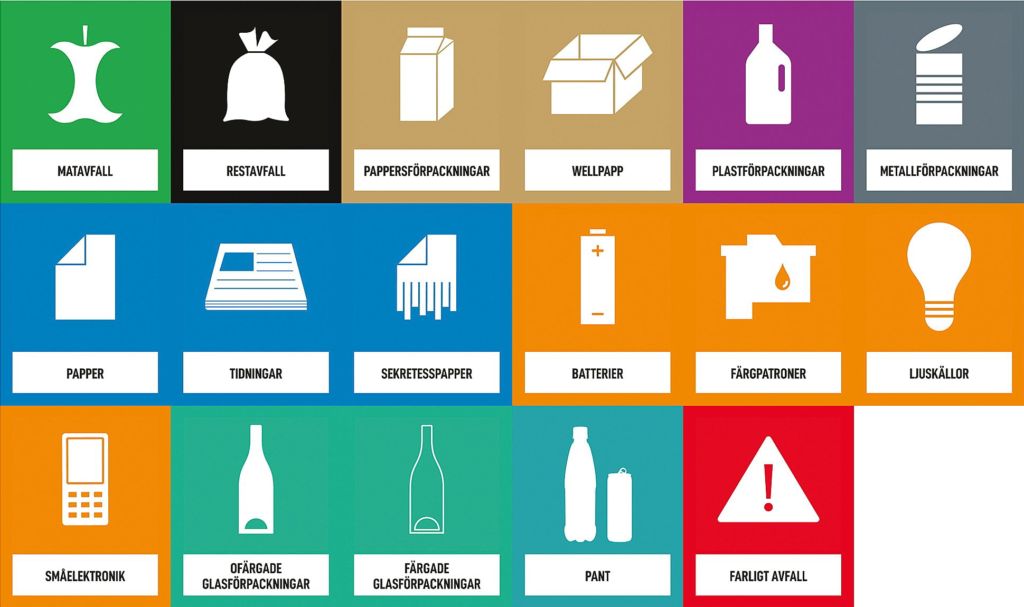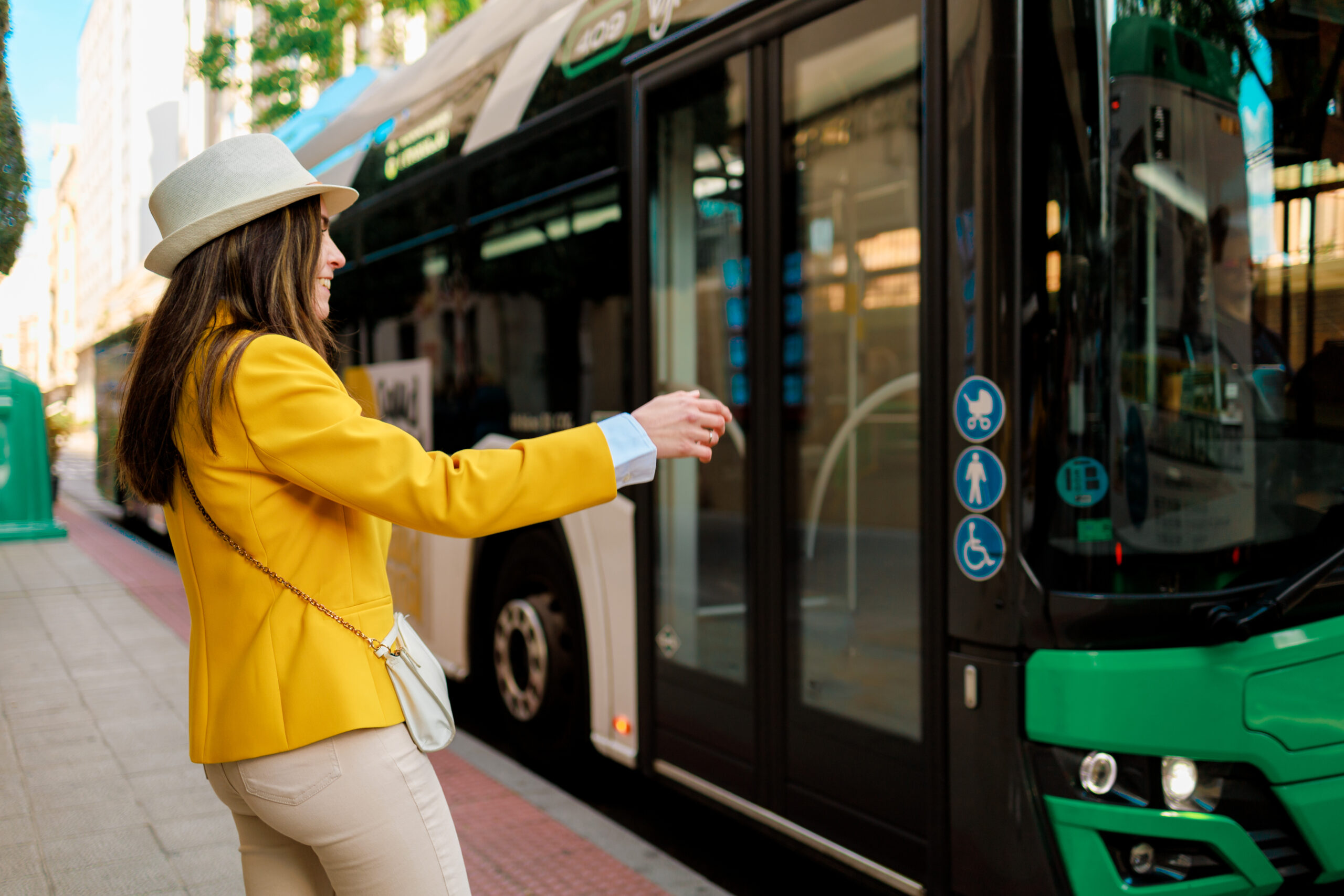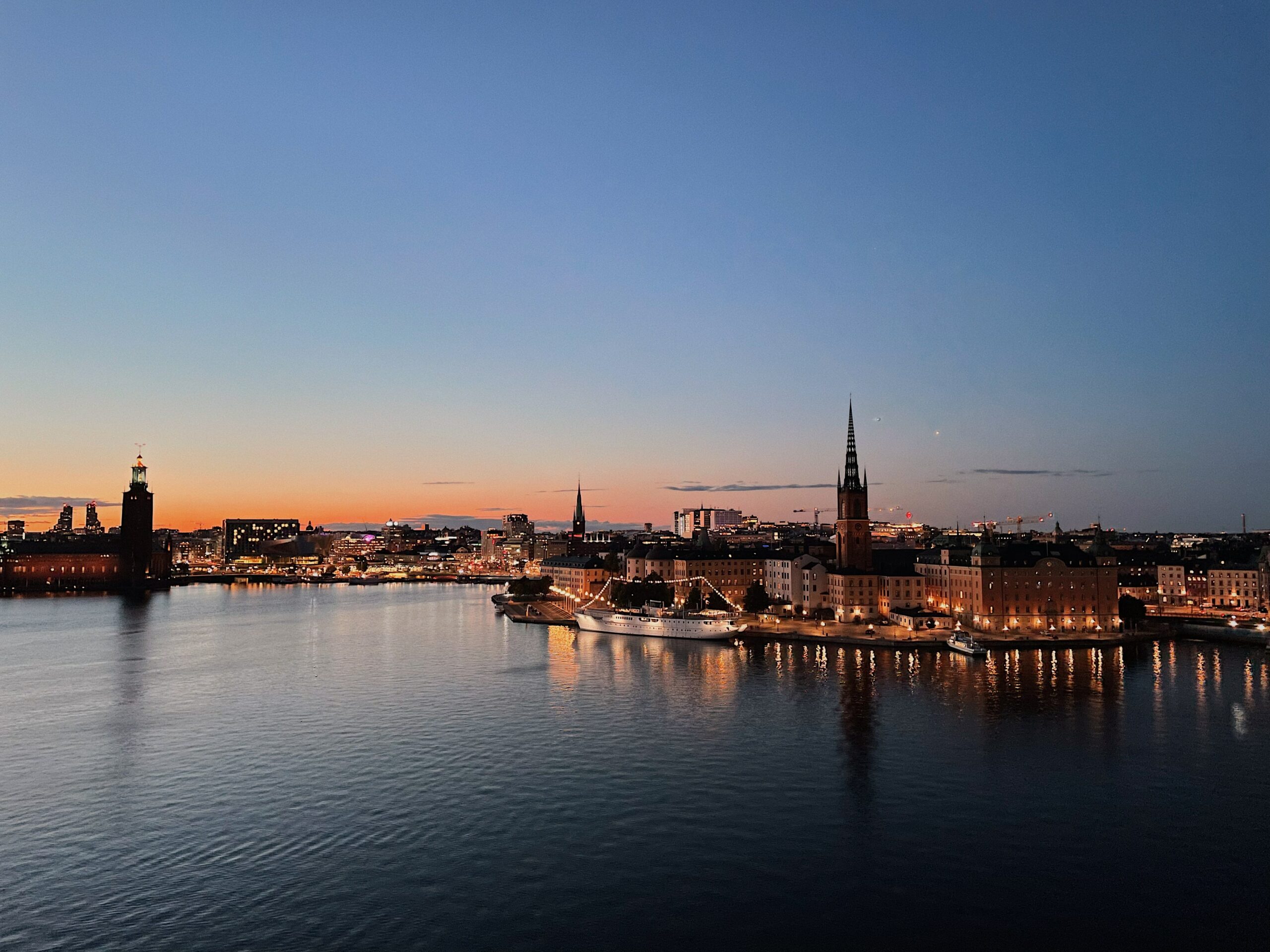Sweden is known for its commitment to sustainability, consistently ranking among the world’s most eco-friendly countries. This green mindset isn’t just about government policies; it’s embedded in daily life. Eco-friendly habits are second nature to Swedes. If you’re new to Sweden, here’s what you need to know to embrace the country’s sustainable lifestyle.
Recycling & waste sorting
Sweden has one of the most advanced waste management systems in the world. In fact, less than 1% of household waste ends up in landfills! Instead, waste is sorted and either recycled or converted into energy. To maintain this high standard, every household is required to sort waste into designated categories, including plastics, paper, metal, glass, food waste and general waste. Most apartment buildings and residential areas have sorting stations either on-site or nearby, and larger recycling centers are available for items like electronics and hazardous waste.
As of 2024, a new Swedish law mandates food waste separation for all households and businesses. Many municipalities have already been doing this for years, but now it’s a nationwide requirement. Additionally, every local authority must provide separate food waste collection, ensuring that organic waste can be turned into biogas or compost instead of ending up in the regular trash.
Sweden has a highly effective deposit return system called “Pant”, which encourages the recycling of bottles and cans. Consumers return them to designated machines at supermarkets in exchange for a small refund. Thanks to this system, Swedes recycle over 85% of all bottles and cans—one of the highest rates in the world.
Tip: Check with your local municipality for specific sorting guidelines—there may be slight regional differences. Also, learn the Swedish terms on recycling bins (e.g., “Plast” for plastic, “Metall” for metal).

Public transport & green mobility
Sweden prioritizes sustainable transport, making it easy to get around without a car. Public transport in cities like Stockholm, Gothenburg and Malmö is largely powered by renewable energy, with many buses running on biogas (produced from the very food waste you just sorted). Trains and trams are also an eco-friendly option, as Sweden’s rail network is primarily powered by electricity from renewable sources.
Biking is another popular and sustainable way to commute. Most urban areas have well-maintained cycling lanes, and many cities are continuously expanding their bike infrastructure to encourage more people to take the bike. For those who don’t own a bike, there are rental stations in many cities and a large secondhand market if you want to buy a bike.
With more and more EV charging stations popping up across the country, owning and driving an electric car in Sweden is pretty smooth. For those looking for a flexible, car-free option, electric scooters and shared electric bikes are available for rent in many cities, offering a convenient and sustainable way to navigate urban areas.
Tip: Get a travel card (SL card in Stockholm, Västtrafik in Gothenburg, Skånetrafiken in southern Sweden) or the city transport app on your smart phone to easily access buses, trains and trams.
Sustainable shopping & consumption
The market for second-hand clothing and furniture continues to grow, offering many options for sustainable shopping. Buying second-hand is a great way to save money and reduce environmental impact. Stores like Myrorna and Erikshjälpen offer everything from clothes to furniture, and online platforms like Blocket and Sellpy make it easy to buy and sell pre-owned items.
Tip: Before buying something new, check second-hand options or repair services. Many cities have “fixotek” (repair cafés) where you can learn to fix things yourself.
Energy efficiency & eco-friendly living
Energy conservation is a priority in Sweden, and many households follow simple but effective ways to reduce their carbon footprint. Many apartments and houses use LED lighting since traditional bulbs have been replaced with more efficient LED lamps. They’re also safer, as they don’t generate heat in the same way. The energy is mostly powered by renewable sources. In fact, Sweden has one of the highest percentages of renewable energy use in Europe, with over 50% of its energy coming from renewable sources.
Tip for expats: Be mindful of electricity use. Turn off lights when leaving a room and unplug chargers when not in use. Also, familiarize yourself with your home’s heating system to use it efficiently in winter.
Nature & outdoor responsibility: Allemansrätten (The Right of Public Access)
Sweden is proud over its nature and recognized the health benefits of spending time in nature. The Swedish law “Allemansrätten” allows everyone to roam freely in nature, even on private land, as long as they respect the environment. This means you can hike, camp and pick berries or mushrooms almost anywhere.
Also, did you know that Sweden is home to “plogging”? It’s an activity combining jogging and picking up litter, which has become a global trend.
Tip for expats: Always follow the “leave no trace” principle. Take your trash with you, don’t disturb wildlife and be mindful when making fires.
Living green in Sweden
Are you ready to embrace Sweden’s sustainable lifestyle? And remember, it’s not about being perfect, it’s about making the small, conscious choices that add up. To navigate cultural differences with ease and feel at home faster, explore our Cultural Integration Services HERE.

